-
 Bitcoin
Bitcoin $83,818.1285
1.19% -
 Ethereum
Ethereum $1,813.8273
1.27% -
 Tether USDt
Tether USDt $0.9997
-0.01% -
 XRP
XRP $2.1250
3.48% -
 BNB
BNB $596.7493
0.64% -
 Solana
Solana $121.2008
5.27% -
 USDC
USDC $1.0000
0.01% -
 Dogecoin
Dogecoin $0.1698
4.33% -
 Cardano
Cardano $0.6591
1.51% -
 TRON
TRON $0.2375
-0.84% -
 UNUS SED LEO
UNUS SED LEO $9.1951
-4.76% -
 Chainlink
Chainlink $12.8892
1.68% -
 Toncoin
Toncoin $3.3131
-5.81% -
 Stellar
Stellar $0.2583
-0.21% -
 Avalanche
Avalanche $18.1653
0.47% -
 Sui
Sui $2.2414
3.02% -
 Shiba Inu
Shiba Inu $0.0...01231
1.76% -
 Hedera
Hedera $0.1635
1.61% -
 Litecoin
Litecoin $84.7103
1.75% -
 Polkadot
Polkadot $4.0184
0.11% -
 MANTRA
MANTRA $6.2827
-1.26% -
 Bitcoin Cash
Bitcoin Cash $300.9919
-0.81% -
 Bitget Token
Bitget Token $4.5306
1.27% -
 Dai
Dai $1.0000
-0.01% -
 Ethena USDe
Ethena USDe $0.9991
-0.04% -
 Monero
Monero $217.9472
1.03% -
 Hyperliquid
Hyperliquid $11.9562
2.18% -
 Uniswap
Uniswap $5.8865
0.68% -
 Pepe
Pepe $0.0...07249
7.38% -
 OKB
OKB $50.7987
8.70%
How to Profit from Buying and Reselling NFTs?
To profit from NFTs, understand market dynamics, select rare or utility-rich NFTs, and use strategies like flipping or long-term holding while managing risks effectively.
Apr 03, 2025 at 10:15 pm
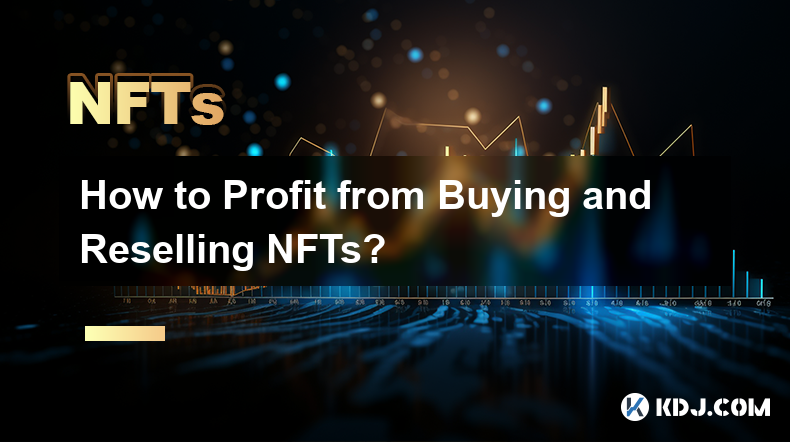
Non-Fungible Tokens (NFTs) have taken the cryptocurrency world by storm, offering unique digital assets that can be bought, sold, and traded. For those looking to profit from buying and reselling NFTs, understanding the market dynamics, selecting the right NFTs, and employing effective strategies are crucial. This article will guide you through the process, helping you maximize your profits in the NFT marketplace.
Understanding the NFT Market
Before diving into the world of NFT trading, it's important to understand the market. NFTs are unique digital assets that represent ownership or proof of authenticity of a specific item or piece of content, typically stored on a blockchain like Ethereum. The market for NFTs has grown significantly, driven by art, collectibles, gaming items, and more. Prices can vary widely, from a few dollars to millions, depending on the rarity, demand, and the creator's reputation.
To succeed in this market, you need to stay informed about trends and news. Platforms like OpenSea, Rarible, and Nifty Gateway are popular for trading NFTs. Monitoring these platforms can help you understand which types of NFTs are in demand and what prices they are fetching.
Selecting the Right NFTs
Choosing the right NFTs to buy and resell is a critical step in your journey to profit. Here are some factors to consider:
- Rarity: NFTs that are rare or limited in number tend to have higher value. Look for items that are part of a limited edition or have unique features that set them apart from others.
- Creator Reputation: NFTs created by well-known artists or established brands often command higher prices. Research the creators and their previous works to gauge their reputation and market demand.
- Utility: Some NFTs offer additional benefits, such as access to exclusive events or in-game advantages. These can increase the value of the NFT beyond its aesthetic appeal.
- Market Trends: Keep an eye on what types of NFTs are currently popular. For instance, if there's a surge in demand for digital art or virtual real estate, these might be good areas to focus on.
By carefully selecting NFTs based on these criteria, you can increase your chances of buying assets that will appreciate in value.
Strategies for Buying and Reselling NFTs
Once you have a good understanding of the market and have selected the right NFTs, the next step is to implement effective buying and reselling strategies. Here are some approaches you can consider:
- Flipping: This involves buying NFTs at a lower price and reselling them quickly for a profit. To do this successfully, you need to be aware of market trends and be ready to act fast when you see an opportunity.
- Long-Term Holding: Some NFTs may not be suitable for quick flips but could appreciate significantly over time. If you believe in the long-term value of an NFT, holding onto it until the market recognizes its worth can be a profitable strategy.
- Auction Sniping: Participating in auctions and placing bids at the last moment can help you secure NFTs at lower prices. This requires careful timing and a good understanding of the auction dynamics.
- Bundling: Sometimes, buying a collection of NFTs and selling them as a bundle can attract buyers looking for a complete set. This can be particularly effective with collectible series or themed NFTs.
Each of these strategies requires a different approach and level of involvement. Choose the one that aligns with your investment goals and risk tolerance.
Managing Risks in NFT Trading
Like any investment, trading NFTs comes with risks. Here are some tips to manage these risks effectively:
- Diversify Your Portfolio: Don't put all your funds into one type of NFT. Spread your investments across different categories to mitigate the risk of a single asset losing value.
- Set a Budget: Decide how much you're willing to spend on NFTs and stick to that budget. This helps prevent over-investment and potential losses.
- Stay Informed: The NFT market can be volatile, with prices fluctuating rapidly. Staying updated with market news and trends can help you make informed decisions.
- Use Secure Platforms: Ensure you use reputable platforms for buying and selling NFTs. Platforms like OpenSea and Rarible have built-in security features to protect your transactions.
By managing these risks, you can protect your investments and increase your chances of making a profit.
Tools and Resources for NFT Trading
To enhance your NFT trading experience, consider using the following tools and resources:
- NFT Marketplaces: Platforms like OpenSea, Rarible, and Nifty Gateway are essential for buying and selling NFTs. Each has its own features and user base, so it's worth exploring multiple platforms.
- Analytics Tools: Tools like NFTGo and CryptoSlam provide valuable data on NFT sales, trends, and market insights. These can help you make more informed decisions.
- Wallets: Secure wallets like MetaMask and Trust Wallet are necessary for storing and managing your NFTs. Ensure your wallet is secure and backed up.
- Communities: Joining NFT communities on platforms like Discord or Twitter can provide insights, tips, and networking opportunities. Engaging with other traders can help you stay on top of the latest trends and opportunities.
Utilizing these tools and resources can give you a competitive edge in the NFT market.
Case Studies: Successful NFT Flips
To illustrate the potential for profit in NFT trading, let's look at a few case studies of successful flips:
- CryptoPunks: One of the earliest and most famous NFT projects, CryptoPunks have seen significant price appreciation. Some early buyers purchased CryptoPunks for a few hundred dollars and later sold them for millions. The rarity and historical significance of these NFTs contributed to their value.
- Bored Ape Yacht Club: BAYC NFTs have become highly sought after, with some buyers flipping them for substantial profits. For example, one buyer purchased a BAYC NFT for 0.5 ETH and resold it for 10 ETH within a few months, capitalizing on the growing demand for these digital collectibles.
- Art Blocks: Art Blocks NFTs, particularly those from the Fidenza series, have seen remarkable price increases. One buyer purchased a Fidenza piece for 1 ETH and resold it for over 100 ETH as the series gained popularity and recognition in the art world.
These case studies demonstrate the potential for significant profits in NFT trading, provided you choose the right assets and time your transactions effectively.
Common Mistakes to Avoid
While there is potential for profit, there are also common pitfalls that can lead to losses. Here are some mistakes to avoid:
- Overpaying: It's easy to get caught up in the hype and pay too much for an NFT. Always research and compare prices before making a purchase.
- Ignoring Market Trends: Failing to stay updated with market trends can lead to missed opportunities or buying NFTs that are losing value.
- Lack of Due Diligence: Not researching the creators or the history of an NFT can result in buying assets that are less valuable than they appear.
- Emotional Trading: Making decisions based on emotions rather than data and analysis can lead to poor investment choices. Stay disciplined and stick to your strategy.
By avoiding these common mistakes, you can increase your chances of success in the NFT market.
Future Trends in the NFT Market
As the NFT market continues to evolve, several trends are likely to shape its future:
- Integration with Gaming: NFTs are increasingly being used in gaming to represent unique in-game items. This could drive further demand and create new opportunities for profit.
- Fractional Ownership: Platforms that allow fractional ownership of NFTs could make these assets more accessible to a broader audience, potentially increasing their liquidity and value.
- Regulation: As the NFT market grows, regulatory bodies may introduce new rules and guidelines. Staying informed about these changes can help you adapt your strategies accordingly.
- Environmental Concerns: The environmental impact of NFTs, particularly those on energy-intensive blockchains like Ethereum, is a growing concern. The shift to more eco-friendly blockchains could influence the market dynamics.
Keeping an eye on these trends can help you anticipate changes in the market and adjust your strategies accordingly.
Common Questions About Profiting from NFTs
Q: What are the best platforms for buying and selling NFTs?
A: Some of the best platforms for trading NFTs include OpenSea, Rarible, and Nifty Gateway. Each platform has its own features and user base, so it's worth exploring multiple options to find the one that suits your needs.
Q: How can I identify valuable NFTs?
A: Valuable NFTs often have unique features, are part of limited editions, or are created by well-known artists or brands. Additionally, NFTs that offer utility, such as access to exclusive events or in-game benefits, can be more valuable. Keeping an eye on market trends and using analytics tools can also help you identify valuable NFTs.
Q: What are the risks of trading NFTs?
A: Trading NFTs comes with several risks, including market volatility, the potential for overpaying, and the risk of buying NFTs that lose value. To manage these risks, diversify your portfolio, set a budget, stay informed about market trends, and use secure platforms.
Q: Can I make a profit by holding NFTs long-term?
A: Yes, some NFTs can appreciate significantly over time, especially if they are rare or gain recognition in the market. Holding onto NFTs that you believe have long-term value can be a profitable strategy.
Q: What tools can help me succeed in NFT trading?
A: Tools like NFTGo and CryptoSlam provide valuable market data and insights. Secure wallets like MetaMask and Trust Wallet are essential for managing your NFTs. Additionally, joining NFT communities on platforms like Discord and Twitter can provide networking opportunities and keep you updated on the latest trends.
Q: Are there any future trends I should be aware of in the NFT market?
A: Future trends in the NFT market include integration with gaming, the rise of fractional ownership, potential regulatory changes, and a shift towards more eco-friendly blockchains. Staying informed about these trends can help you adapt your strategies and capitalize on new opportunities.
Disclaimer:info@kdj.com
The information provided is not trading advice. kdj.com does not assume any responsibility for any investments made based on the information provided in this article. Cryptocurrencies are highly volatile and it is highly recommended that you invest with caution after thorough research!
If you believe that the content used on this website infringes your copyright, please contact us immediately (info@kdj.com) and we will delete it promptly.
- NORDO, a New Crypto Project, Captures Attention by Mixing Humor, Politics, and Polar Bears
- 2025-04-05 13:20:12
- Coreum's role in institutional blockchain adoption
- 2025-04-05 13:20:12
- More Bitcoin, says Michael Saylor as BTC price breaks out
- 2025-04-05 13:15:12
- Solana (SOL) Tests Key Support Levels as Market Gauges the Potential for Either a Major Decline or a Recovery to New All-Time Highs
- 2025-04-05 13:15:12
- Dogecoin (DOGE) Market Trends Could Be Mirroring Larger Economic Shifts
- 2025-04-05 13:10:12
- DePIN Summit Africa 2025 Announced for July 2nd in Mombasa and July 4-5th in Zanzibar
- 2025-04-05 13:10:12
Related knowledge
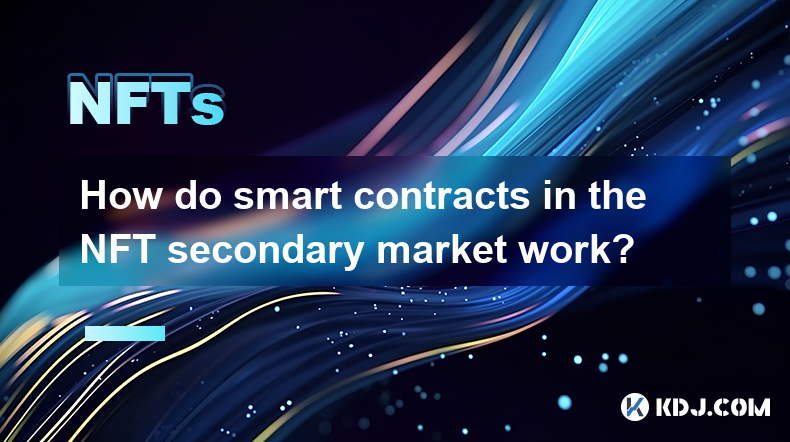
How do smart contracts in the NFT secondary market work?
Apr 03,2025 at 07:14am
Smart contracts play a pivotal role in the NFT secondary market, facilitating seamless transactions and enforcing predefined rules. These self-executing contracts with the terms of the agreement directly written into code are stored on the blockchain. In the context of NFTs, smart contracts automate the buying, selling, and transferring of digital asset...
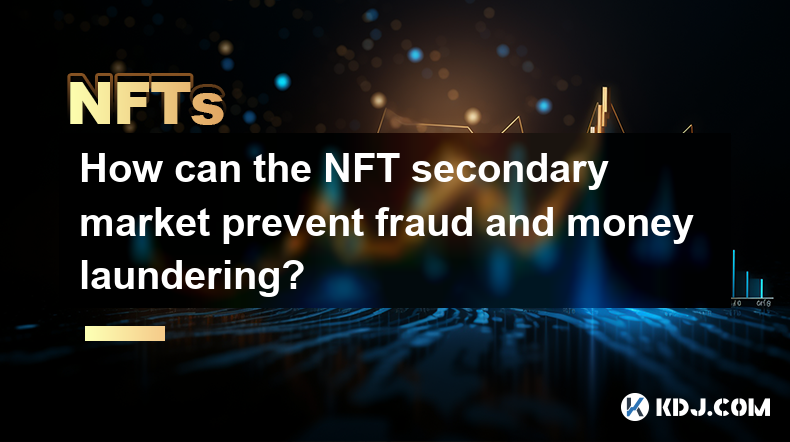
How can the NFT secondary market prevent fraud and money laundering?
Apr 03,2025 at 08:35am
The NFT secondary market has become a thriving hub for digital art and collectibles, but it also faces challenges in preventing fraud and money laundering. To tackle these issues, the market can implement various strategies and technologies to ensure a safer and more transparent trading environment. This article will explore how the NFT secondary market...
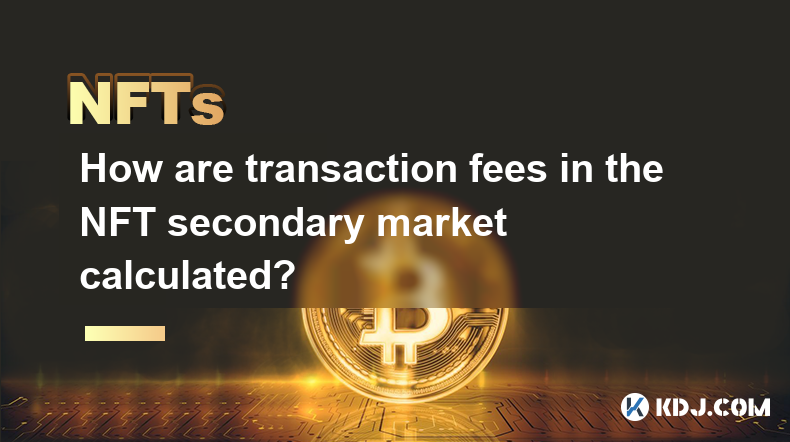
How are transaction fees in the NFT secondary market calculated?
Apr 04,2025 at 05:28am
The calculation of transaction fees in the NFT secondary market is a crucial aspect that both buyers and sellers need to understand. These fees can significantly impact the overall cost of transactions and the profits that sellers can make. In this article, we will delve into the various components that make up these fees, how they are calculated, and w...
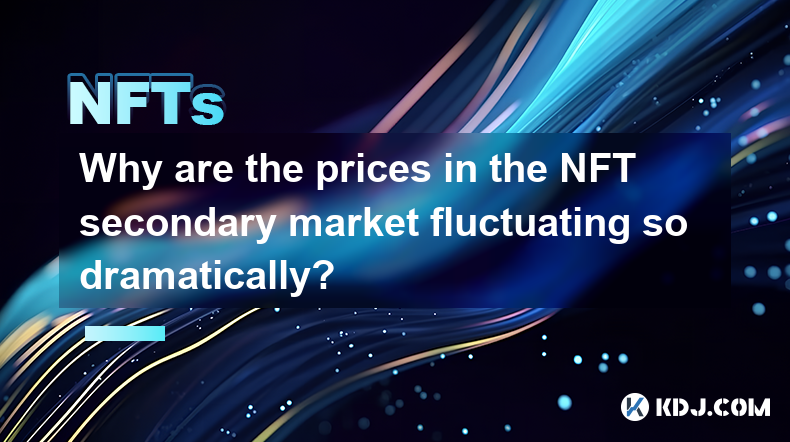
Why are the prices in the NFT secondary market fluctuating so dramatically?
Apr 03,2025 at 10:35pm
The NFT secondary market has been experiencing dramatic price fluctuations, leaving many in the cryptocurrency community puzzled and curious. To understand this phenomenon, it's essential to delve into the factors driving these price movements. From the impact of market sentiment and celebrity endorsements to the role of speculation and the unique natur...
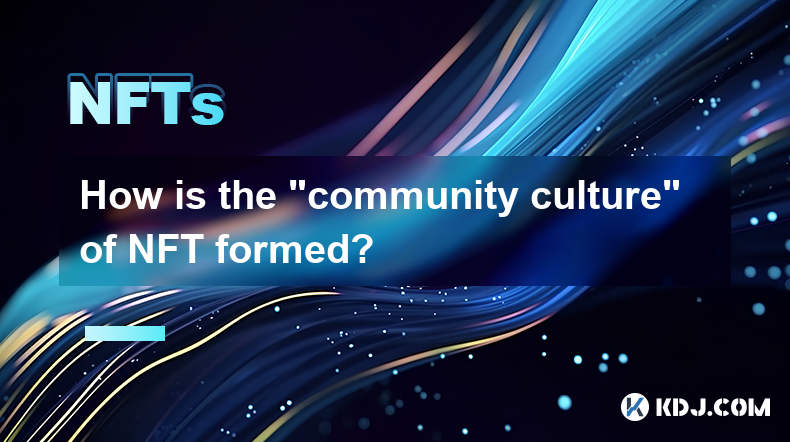
How is the “community culture” of NFT formed?
Apr 03,2025 at 11:07am
The formation of the 'community culture' within the NFT (Non-Fungible Token) space is a fascinating and multi-faceted process. It involves various elements such as shared interests, active engagement, and the creation of a sense of belonging among members. NFT communities often revolve around specific projects or artists, fostering a unique environment ...
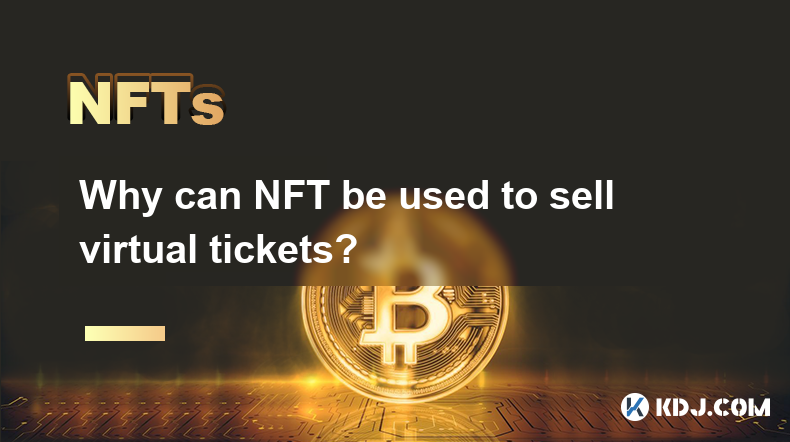
Why can NFT be used to sell virtual tickets?
Apr 03,2025 at 01:35pm
NFTs, or Non-Fungible Tokens, have revolutionized the way we think about digital ownership and value, particularly in the realm of virtual tickets. The primary reason NFTs can be used to sell virtual tickets is their unique nature. Unlike cryptocurrencies such as Bitcoin or Ethereum, which are fungible and can be exchanged on a one-to-one basis, NFTs ar...

How do smart contracts in the NFT secondary market work?
Apr 03,2025 at 07:14am
Smart contracts play a pivotal role in the NFT secondary market, facilitating seamless transactions and enforcing predefined rules. These self-executing contracts with the terms of the agreement directly written into code are stored on the blockchain. In the context of NFTs, smart contracts automate the buying, selling, and transferring of digital asset...

How can the NFT secondary market prevent fraud and money laundering?
Apr 03,2025 at 08:35am
The NFT secondary market has become a thriving hub for digital art and collectibles, but it also faces challenges in preventing fraud and money laundering. To tackle these issues, the market can implement various strategies and technologies to ensure a safer and more transparent trading environment. This article will explore how the NFT secondary market...

How are transaction fees in the NFT secondary market calculated?
Apr 04,2025 at 05:28am
The calculation of transaction fees in the NFT secondary market is a crucial aspect that both buyers and sellers need to understand. These fees can significantly impact the overall cost of transactions and the profits that sellers can make. In this article, we will delve into the various components that make up these fees, how they are calculated, and w...

Why are the prices in the NFT secondary market fluctuating so dramatically?
Apr 03,2025 at 10:35pm
The NFT secondary market has been experiencing dramatic price fluctuations, leaving many in the cryptocurrency community puzzled and curious. To understand this phenomenon, it's essential to delve into the factors driving these price movements. From the impact of market sentiment and celebrity endorsements to the role of speculation and the unique natur...

How is the “community culture” of NFT formed?
Apr 03,2025 at 11:07am
The formation of the 'community culture' within the NFT (Non-Fungible Token) space is a fascinating and multi-faceted process. It involves various elements such as shared interests, active engagement, and the creation of a sense of belonging among members. NFT communities often revolve around specific projects or artists, fostering a unique environment ...

Why can NFT be used to sell virtual tickets?
Apr 03,2025 at 01:35pm
NFTs, or Non-Fungible Tokens, have revolutionized the way we think about digital ownership and value, particularly in the realm of virtual tickets. The primary reason NFTs can be used to sell virtual tickets is their unique nature. Unlike cryptocurrencies such as Bitcoin or Ethereum, which are fungible and can be exchanged on a one-to-one basis, NFTs ar...
See all articles





















































































